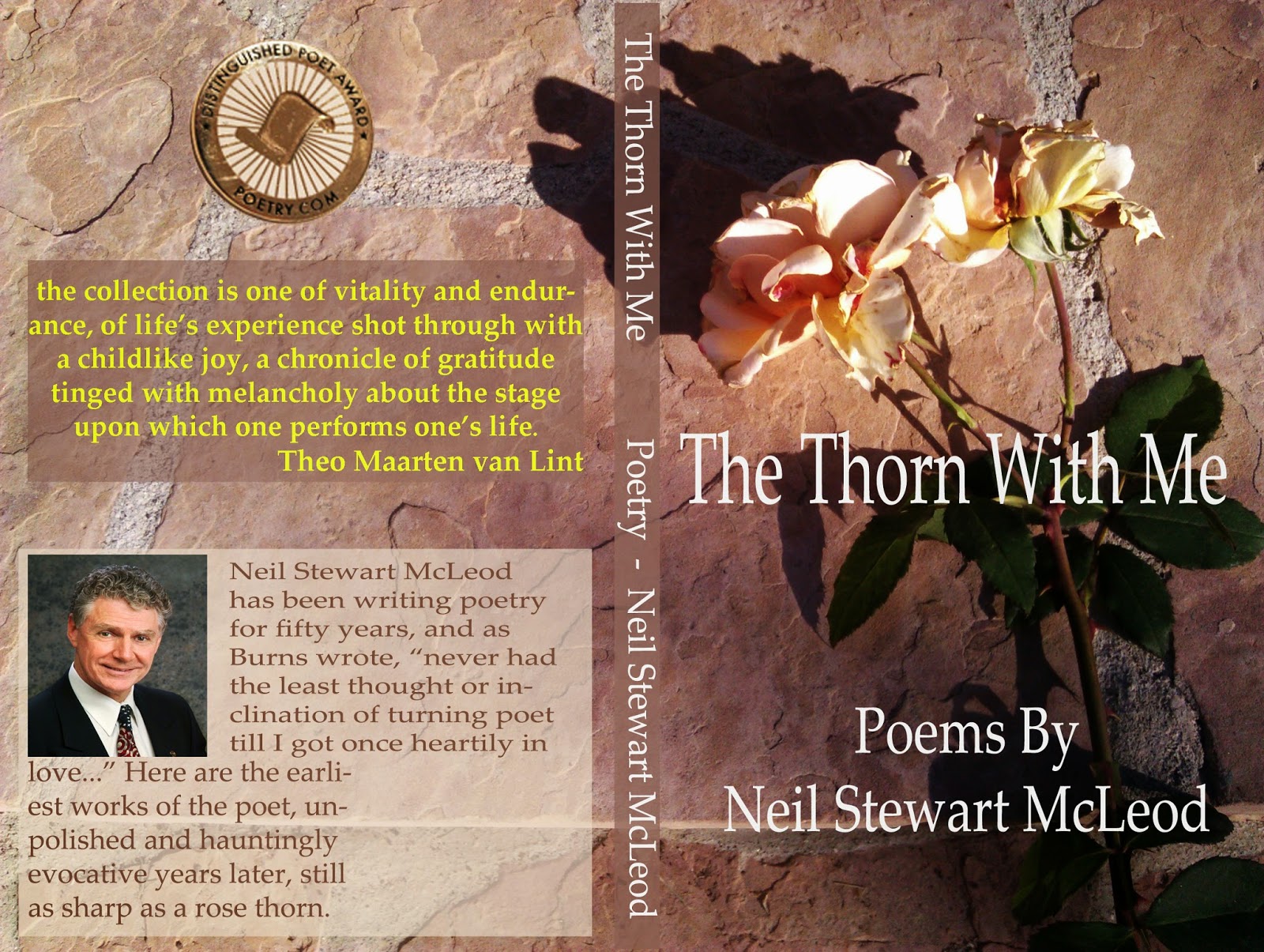Here, at last, is my tenth book of poems with an introduction by Oxford Professor Theo Maarten van Lint.
Here are the earliest poems I ever wrote and also some of the newest. Reservations about their suitability and immaturity of the former have always dogged a willingness to share them. However, at the end of producing a series of volumes of poetry, “Dawning Oxford” and “Timeless Oxford” needed somewhere to go. They are from those student days when we spend time sorting out our priorities, working late, and reflecting on what lies ahead. In “The Going” consideration of leaving cheap digs in London provided the canvas for melancholy reminiscence. Then there are the fanciful love poems like so many poured forth on poetry.com everyday. Finally, “The View” and “The Open Fire” are the most recent and give some dimension to the collection. They are available on Amazon.
The title, “The Thorn With Me” obviously come from Burns “Ye Banks and Braes” or more correctly “The Banks of Doon”. These reflections all have a lingering sting. They can not be remembered without sensing again the twinge of emotion and even embarrassment. Yet here they are heart aches and all.
Professor van Lint wrote:
The Thorn With Me takes the reader to
Oxford and London, through poems written in the poet’s student days in the late
sixties and early seventies, next to much more recent places and material,
looking back, revisiting, reliving, and revising. The occasions are precise,
the feelings retain a poignancy in memory that bridges time and convey a strong
sense of place.
The tone of the poems is often parlando, with laconic rhyme, elsewhere events
are carried on a song’s rhythm, while the vocabulary mixes accessible parlance
with archaisms, fusing into the poet’s specific voice. There is a lightness to
life that springs not from superficiality, but from resilience and a sense of
humour based in what seems a matter-of-fact acceptation in advance of the
bumpiness of the ride. The title goes some way to explain the attitude. Yet,
one wonders about the strength of the sting the thorn causes. The hurt is
present, but muted by the power that looking back and weaving memory into the
tissue of today’s emotions affords. Stung, wounded, a thorn in the flesh,
whether for love lost or the social indifference of urban developers pushing
for a modern Babylon; Neil McLeod takes stock in epic vignettes, rather than in
soul bearing lyric. Yet, tenderness and vulnerability are given voice in the
present for a sister and the gift of a child. The aspect of a tale of years
gone by, of a book of memory, an album, is reinforced not only by the photos
and drawings adduced in embedding the poems in the realia and personalia of
their time of creation, but also in the brief introductions and comments that
accompany many of the poems.
A lingering impression of the collection is
one of vitality and endurance, of life’s experience shot through with a childlike
joy, a chronicle of gratitude tinged with melancholy about the stage upon which
one performs one’s life.
University of Oxford


No comments:
Post a Comment